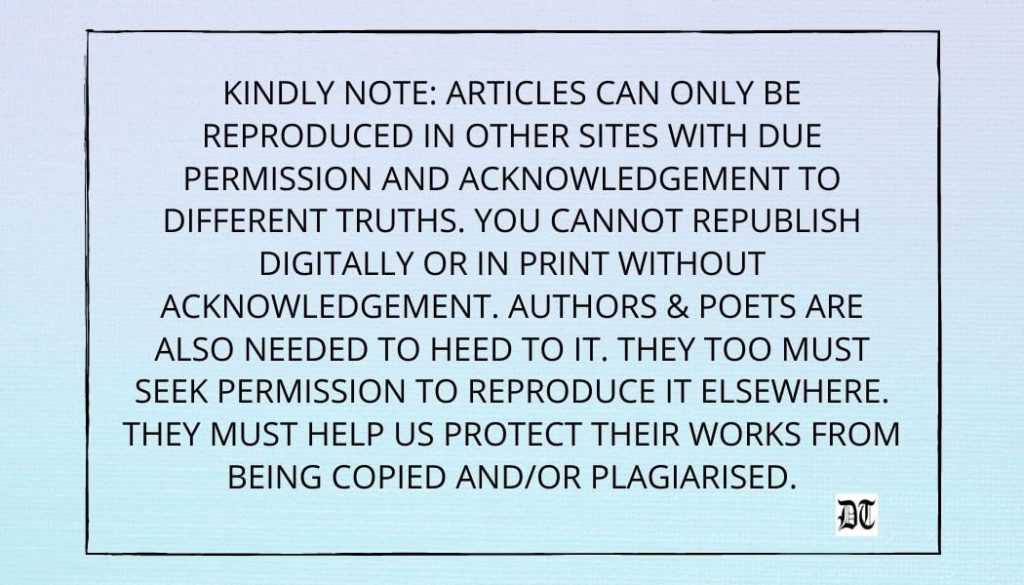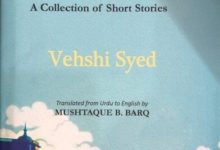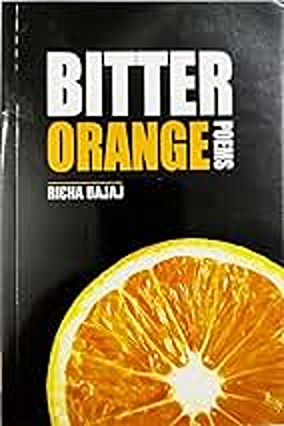Enakshi reviews Nibedita Deb’s collection of stories, The Goddess’s Homecoming. An exclusive for Different Truths.

Book: The Goddess’s Homecoming
Author: Nibedita Deb
Publisher: Self-published
Rating: 4/5
The Goddess’s Homecoming proves the adage- women are like teabags; you don’t know how strong it is unless it is in hot water – right. Women, god’s most wonderful creation, are super beings, for they know well how to brace themselves for all adversities and eventually emerge victoriously. Sometimes victory is not counted in terms of winning; sometimes victory is more about acceptance or silence that pervades through the most impermeable walls.
The Goddess’s Homecoming is metaphorically related to women’s homecoming. Five stories revolving around the biggest celebration that happens every year in Kolkata, Durga Puja, bring forth some of the most memorable and audacious characters that prove that women can do anything.
The Goddess’s Homecoming is metaphorically related to women’s homecoming. Five stories revolving around the biggest celebration that happens every year in Kolkata, Durga Puja, bring forth some of the most memorable and audacious characters that prove that women can do anything.
Titled aptly, each story revolves around a female protagonist who is caught in a whirlpool of problems that seem to cling onto her fate. Weaving the narrative around and about the Durga Puja festival, the author deftly portrays the spirit and never-ending enigma of the women of today who are no longer ‘just a voice in the wilderness’.
The first story is that of Mohuli, a gleaner, who suffers at the hands of destiny when her husband remarries as she is unable to give him a child. Living under the same roof with her husband’s second wife, she toils night and day in the hope to compensate for her worthlessness.

The first story is that of Mohuli, a gleaner, who suffers at the hands of destiny when her husband remarries as she is unable to give him a child. Living under the same roof with her husband’s second wife, she toils night and day in the hope to compensate for her worthlessness. The author exposes Mohuli’s character in layers, eventually revealing the Goddess in her who takes the reins of her life in her own hands and gets down to business.
The second story is that of Shreya who exemplifies the idea of vows and loyalty. While there are several people who would find the concept of wavering loyalties in this story quite acceptable, I, for once, was convinced that Shreya’s decision to step out of her comfort zone after her husband leaves her, was commendable and brave.
The third story is about Anjali, a little girl who challenges the stereotypical and blind mentality of the people in her village. Believing in the eight virtues that a girl should possess, most people ignore that every girl is a human, after all.
The third story is about Anjali, a little girl who challenges the stereotypical and blind mentality of the people in her village. Believing in the eight virtues that a girl should possess, most people ignore that every girl is a human, after all. When Anjali embarks on a daunting journey of carrying forward the royal tradition single-handedly, she is in for a surprise.
The next story about Mrinmayee will win your heart. Battling with the demons in the real world who do not leave any chance to pounce upon women owing to lust and envy, Mrinmayee paves her way to success (even if it is miniature) by following the right path and having the courage to say no.
The last in the list is Pihu’s story. Her grit and determination to prove that her ageing grandfather is not mad, but a victim of circumstances and age is worth every ounce of appreciation.
The last in the list is Pihu’s story. Her grit and determination to prove that her ageing grandfather is not mad, but a victim of circumstances and age is worth every ounce of appreciation. It is said that the old people relish narrating tales of myth and folklore. Using the same idea, Pihu bargains the old man’s happiness with Pari’s inquisitive mind.
All in all, The Goddess’s Homecoming is an interesting collection of stories. I liked the gradual build-up of plot in every story. Somewhere I did miss the characterization of certain characters like Mohuli and Shreya; their characters could be explored more. The writing is fluid and that makes the reading quick. Each title resonates with the particular day that marks the celebration and the event finds a subtle relevance in the plot too. Even though the stories lacked imagery, the mention of certain elements did a good job in providing the necessary flavour of the setting.
The stories need one round of editing. There are certain pronouns that have been confused with. The title (with extra ‘s’ after apostrophe) was another thing that irked me.
The stories need one round of editing. There are certain pronouns that have been confused with. The title (with extra ‘s’ after apostrophe) was another thing that irked me. However, I shall give it to the creative license this time because I liked the compilation overall.
Best wishes to the author!
Photos sourced by the reviewer






 By
By
 By
By
 By
By
 By
By